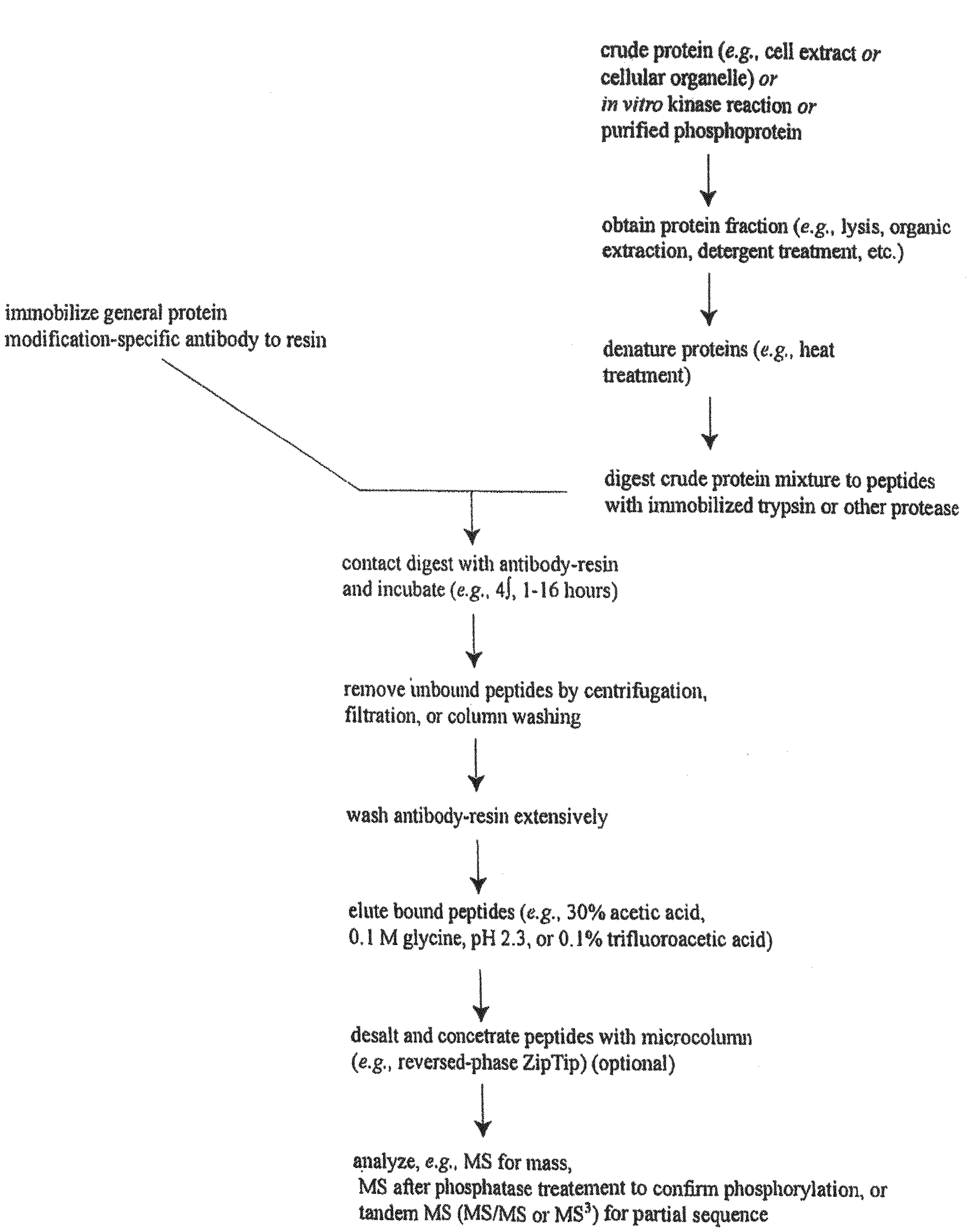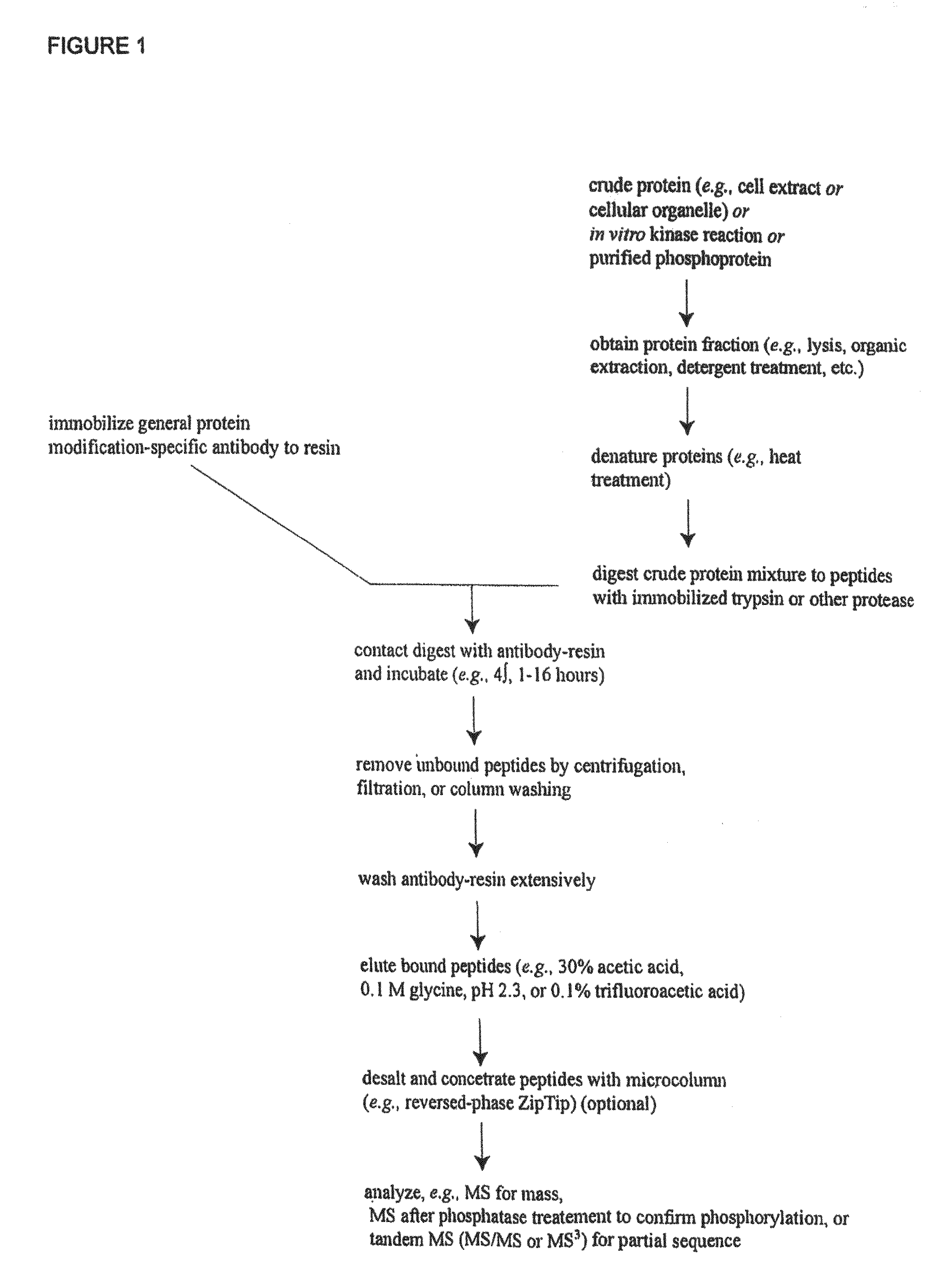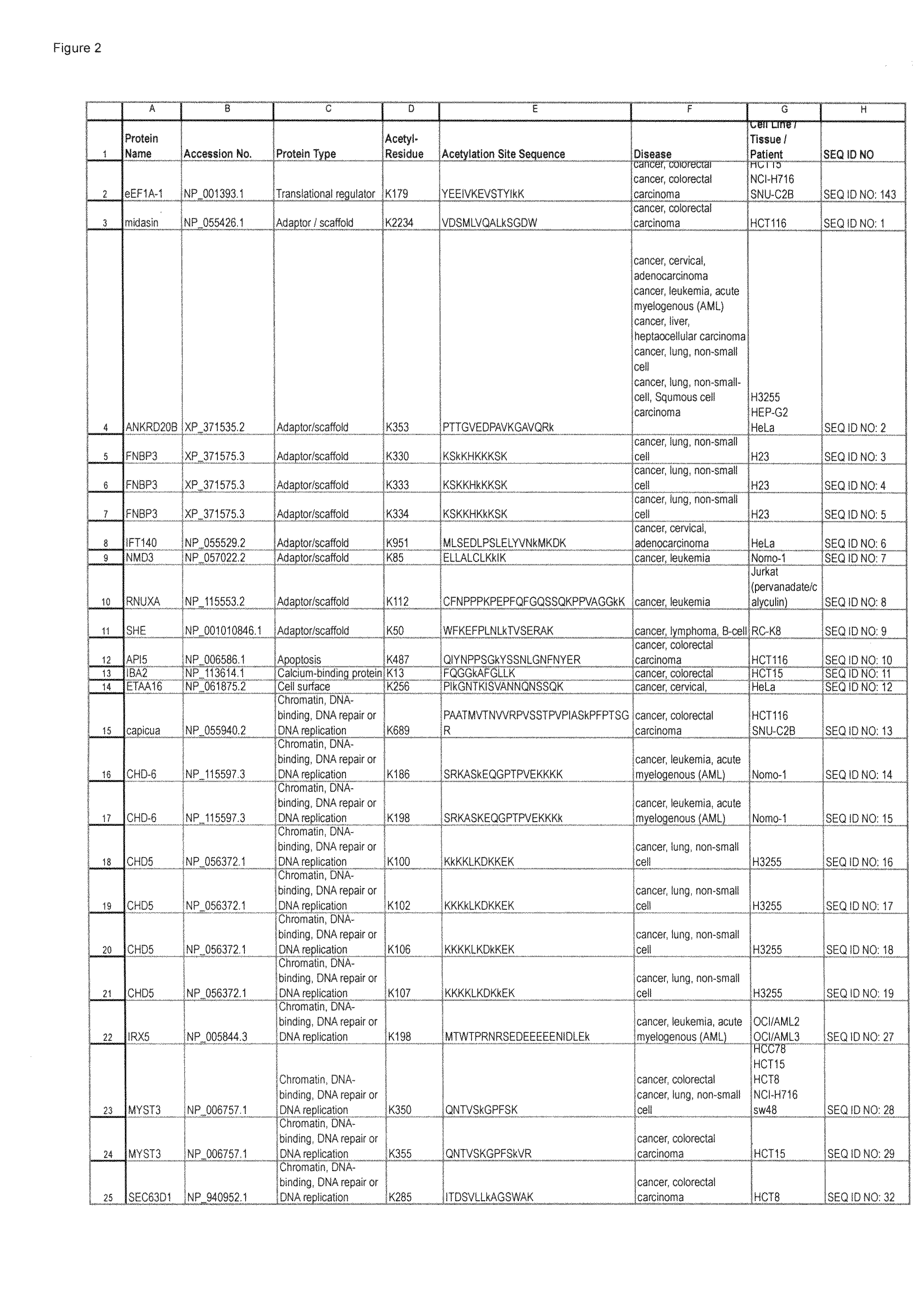Lysine acetylation sites
a technology of lysine acetylation and site, which is applied in the direction of peptide sources, instruments, peptides, etc., can solve the problems of cell death, affecting protein stability, and not yet well understood
- Summary
- Abstract
- Description
- Claims
- Application Information
AI Technical Summary
Benefits of technology
Problems solved by technology
Method used
Image
Examples
example 1
Isolation of Acetyl-Lysine Containing Peptides from Extracts of Cancer Cell Lines and Identification of Novel Acetylation Sites
[0255]In order to discover novel lysine acetylation sites in cancer (including carcinoma), IAP isolation techniques were used to identify acetyl-lysine containing peptides in cell extracts from human cancer cell lines and patient cell lines identified in Column G of Table 1 including H23, H3255, H520, HCC78, HCC827, HCT116, HCT15, HCT8, HEP-G2, HeLa, K562, NB-4, NCI-H716, OCI / AML2, OCI / AML3, SIL-ALL, SNU-C2B, SW620, sw48, sw480.
[0256]Tryptic acetyl-lysine containing peptides were purified and analyzed from extracts of each of the cell lines mentioned above, as follows. Cells were cultured in DMEM medium or RPMI 1640 medium supplemented with 10% fetal bovine serum and penicillin / streptomycin.
[0257]Suspension cells were harvested by low speed centrifugation. After complete aspiration of medium, cells were resuspended in 1 mL lysis buffer per 1.25×108 cells (20...
example 2
Production of Acetylation Site-Specific Polyclonal Antibodies
[0273]Polyclonal antibodies that specifically bind a novel acetylation site of the invention (Table 1 / FIG. 2) only when the lysine residue is acetylated (and does not bind to the same sequence when the lysine is not acetylated), and vice versa, are produced according to standard methods by first constructing a synthetic peptide antigen comprising the acetylation site and then immunizing an animal to raise antibodies against the antigen, as further described below. Production of exemplary polyclonal antibodies is provided below.
A. MYST3 (Lysine 350).
[0274]An 11 amino acid acetyl-peptide antigen, QNTVSk*GPFSK
[0275](SEQ NO: 28; k*=acetyl-lysine), which comprises the acetylation site derived from human MYST3 (a chromatin or DNA binding / repair / replication protein), Lys 350 being the acetylatable residue), plus cysteine on the C-terminal for coupling, is constructed according to standard synthesis techniques using, e.g., a Raini...
example 3
Production of Acetylation Site-specific Monoclonal Antibodies
[0282]Monoclonal antibodies that specifically bind a novel acetylation site of the invention (Table 1) only when the lysine residue is acetylated (and does not bind to the same sequence when the lysine is not acetylated) are produced according to standard methods by first constructing a synthetic peptide antigen comprising the acetylation site and then immunizing an animal to raise antibodies against the antigen, and harvesting spleen cells from such animals to produce fusion hybridomas, as further described below. Production of exemplary monoclonal antibodies is provided below.
A. CaRHSP1 (Lysine 68).
[0283]An 8 amino acid acetyl-peptide antigen, GVCk*CFCR (SEQ ID NO: 82; k*=acetyl-lysine), which comprises the acetylation site derived from human CaRHSP1 (an RNA binding protein, Lys 68 being the phosphorylatable residue), plus cysteine on the C-terminal for coupling, is constructed according to standard synthesis techniques ...
PUM
| Property | Measurement | Unit |
|---|---|---|
| concentration | aaaaa | aaaaa |
| dissociation constant | aaaaa | aaaaa |
| dissociation constant | aaaaa | aaaaa |
Abstract
Description
Claims
Application Information
 Login to View More
Login to View More - R&D
- Intellectual Property
- Life Sciences
- Materials
- Tech Scout
- Unparalleled Data Quality
- Higher Quality Content
- 60% Fewer Hallucinations
Browse by: Latest US Patents, China's latest patents, Technical Efficacy Thesaurus, Application Domain, Technology Topic, Popular Technical Reports.
© 2025 PatSnap. All rights reserved.Legal|Privacy policy|Modern Slavery Act Transparency Statement|Sitemap|About US| Contact US: help@patsnap.com



